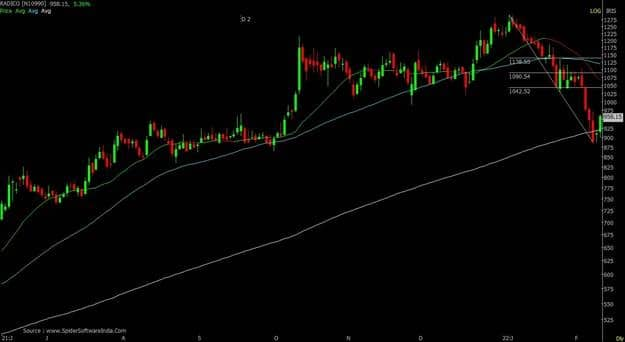
Shubham Agarwal
Markets can be trending or consolidating at times and as a trader, one should look to place their trade as an opportunist. In times when the market is consolidating, opportunities exist for making returns by selling options. With highly liquid weekly options available, forecasts of even a week’s consolidation can be converted into a trade.
Options Selling requires shorting options without owning one. The risk profile of selling naked options is unlimited, however, depending on the risk preference hedged writing can also be initiated with a trade off to reward and risk.
When to Short options?
The best time to sell options are generally when market or instrument is sideways and within the consolidation, if there are mean-reverting implied volatility opportunities. A simple manual way to know if the market is consolidating would be to monitor the index chart of the past few weeks’ time frame. A good technical indicator to establish the regime would be plotting the ADX technical study and if the value is less than 20 it generally indicates a consolidating behaviour.
Understanding Implied Volatility for Selling Options
Implied volatility plays a very essential role in option pricing hence, it should be an input to decide a trade. Unlike stocks, IV has an inherent characteristic of mean-reversion which means, it generally consolidates in a range. For example, if the IV of Nifty is ranging from 16 to 25, it will generally hold true for a good time till an extraordinary force changes the regime. Naturally, the strike rate is in favour as the regime changes are less frequent. Looking at the recent few months IV range can give a clue of the current regime.
IV Percentile is another way to understand how high is IV relative to its recent past, even though selling at an IVP of closer to 100 might be desirable but is not practical. IVP also generally consolidates in a band or range for e.g. currently the IVP of Nifty is consolidating with a peak at 70. This range might change in future but till it holds true the range can guide in initiating trades with a naturally high strike rate.
So combining the above studies, it will be apt to sell options when IV is at a relative peak and IVP at the same time is also at a relative peak, this tells you that you are selling expensive option in an expectation that the consolidation will hold true.
The Trade
Selling options can be done with multiple strategies but the most common two strategies are Short Strangle and Hedged one like Iron Condor. For initiating both the strategies a viewpoint on the underlying levels will also be required and technical indicators like Bollinger bands can help in deciding the same. Simple ones could also be used like supports and resistances of the recent past which acts like demand and supply points.
Short Strangle: In a short strangle one sells an OTM call for a level which is expected to be the upper resistance for the underlying and at the same time selling an OTM put for expected support. This strategy has an unlimited risk profile and a strict stop loss for the joint premium should be maintained. Generally, if you intend to gain Rs. 100 from the combined premium you should not keep a stop loss of more than Rs. 200 on the joint premium keeping the reward to risk 1:1. Even though the reward to risk is 1:1 but you still make returns due to a high strike rate. Remember if this strategy is carried overnight, it will carry gap risk.
Iron Condors: Iron condors are short strangles with a hedge. So, you buy a deep OTM option for each calls and puts sold. This keeps the risk limited with a trade-off of reduced return. An active stop loss might not be required as the strategy is hedged.
Depending on the risk tolerance one can choose from the above two strategies.
Summary
Consolidating markets can be an opportunity to make returns from selling options. A consolidating market with high relative IV and high relative IV percentile can be an opportunity for weekly options on the Index.
Note: Index will be a much safer instrument for this as stocks can contain high un-systematic risk.
Disclaimer: The views and investment tips expressed by experts on Moneycontrol.com are their own and not those of the website or its management. Moneycontrol.com advises users to check with certified experts before taking any investment decisions.

